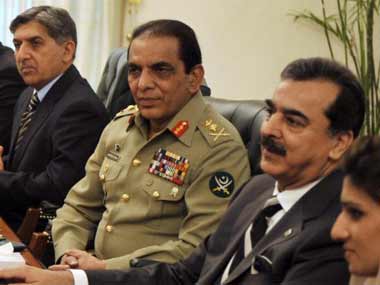By B Raman After having fairly successfully defied the Army over the so-called Memogate affair, the elected Pakistani executive headed by President Asif Ali Zardari has now chosen to defy the judiciary on the question of its refusal to write to the Swiss government requesting it to reopen the investigation into some Swiss bank accounts allegedly belonging to Zardari and the late Benazir Bhutto. The directive to write to the Swiss government came from the Supreme Court headed by Chief Justice Iftikhar Mohammad Chaudhury. The executive could have easily written to the Swiss government and avoided a confrontation with the judiciary. It was very unlikely that the Swiss government would have reopened the investigation. Once the executive wrote this letter, there would have been no more grounds for the court to proceed against Prime Minister Yusuf Raza Gilani on a charge of contempt of court. Instead of choosing this easier option, the executive has chosen the more difficult and complex option of refusing to write to the Swiss government on the ground that Zardari as the President enjoyed immunity from investigation and prosecution. [caption id=“attachment_211450” align=“alignleft” width=“380” caption=“The intriguing question is what accounts for the apparent confidence of the executive that it can defy the judiciary and still escape negative consequences. AFP”]  [/caption] Faced with a defiant executive, a seven-member bench of the court, headed by the Chief Justice, has framed an indictment (US expression) or a charge-sheet (a subcontinental expression inherited from the British) against Gilani on Monday. What this means is that from being a man under investigation as he was till now, he has become an accused in a criminal prosecution, but he is not yet a convict. The question of his resignation from office and his arrest will arise only if, after the trial, the charge of contempt of court against him is held to have been proved and he is convicted. At the pre-trial stage of framing of the charge-sheet, there was no scope for a compromise or flexibility in the judiciary’s handling of the case. The court had no other alternative but to charge-sheet and Gilani has no other alternative but to stand trial. The question of a possible Presidential pardon will arise only after conviction and not in the pre-conviction stage. The intriguing question is what accounts for the apparent confidence of the executive that it can defy the judiciary and still escape negative consequences. There are three plus points for the executive: first, the solidarity between Zardari and Gilani continues; second, the Pakistan People’s Party (PPP) and its coalition allies remain united behind the Zardari-Gilani combine; and third, there has been no public reaction against the executive for defying the judiciary similar to what one saw against Pervez Musharraf when he defied the judiciary and had Iftikhar Mohammad Chaudhury dismissed. Another important plus point is that Aitzaz Ahsan, the celebrated lawyer belonging to the PPP, who was in the forefront of the “Back Iftikhar Mohammad Chaudhury” movement formed by the public and the lawyers community, is now supporting the executive against the judiciary and defending Gilani. He seems to have lost his influence with the Chief Justice, but it is likely that he still has a good equation with some other judges of the bench that will try Gilani. If the trial goes ahead as expected, three alternative scenarios are possible: Scenario 1: A split develops in the Bench and a majority verdict convicting Gilani eludes it, thereby forcing a compromise. Scenario 2: The Bench remains united and reaches a majority, if not unanimous, verdict convicting Gilani who is then pardoned by Zardari. Scenario 3: Gilani is convicted and chooses to resign and go to jail in order to highlight excessive judicial activism. If Zardari does not exercise the right of presidential pardon and if Gilani chooses to go to jail, there will be a new phase of aggravated political uncertainty in Pakistan. B Raman is Additional Secretary (Retired) in the Cabinet Secretariat, Government of India. He is currently Director of the Institute for Topical Studies, Chennai; and Associate of the Chennai Centre for China Studies. Republished with permission from the Chennai Centre for China Studies.
After standing up to the Pakistan army, the country’s civilian executive is now confronting the judiciary. Here’s how it hopes to escape the negative consequences of its actions.
Advertisement
End of Article
Written by FP Archives
see more


)

)
)
)
)
)
)
)
)



